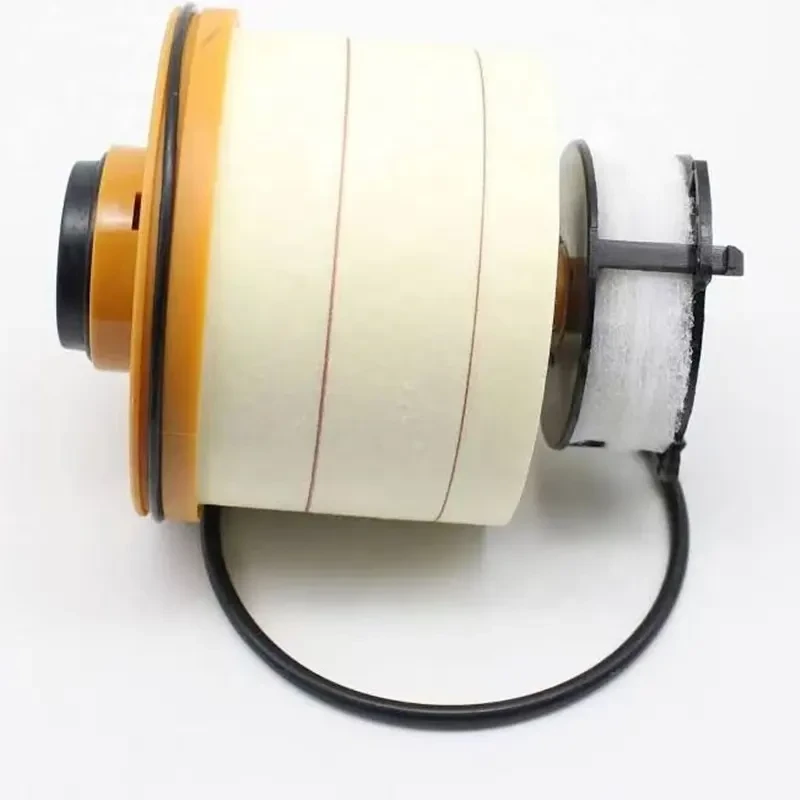تەموز . 08, 2025 07:40 Back to list
Premium Canister Fuel Filter Supplier High Quality Oil Filtration Solutions
- Introduction and Industry Overview: Importance of Canister Fuel Filters in Modern Engineering
- Technical Insights: Design and Functional Superiority
- Performance Data: A Comparative Table of Key Specs
- Supplier Comparison: Global Analysis and Market Position
- Customization Options: Tailoring Canister Filter Oil Solutions
- Case Studies: Real-World Applications Across Industries
- Conclusion: The Future of Canister Fuel Filter Technology

(canister fuel filter)
Introduction: Significance of Canister Fuel Filter in Engine Protection
Today’s fuel delivery systems demand advanced componentry, and the canister fuel filter
has become a linchpin in ensuring long-term engine reliability. Its primary function lies in removing particulates and contaminants from fuel—critical for systems using precise injectors that operate under high pressures. According to the International Organization of Motor Vehicle Manufacturers, over 91 million vehicles were produced globally in 2023, each depending on high-efficiency fuel filtration. This ever-growing engine market, combined with strict emission standards worldwide, further increases the demand for sophisticated filtration technologies. Recent studies show that proper filter maintenance can improve fuel system longevity by 30% and reduce maintenance costs by up to 25%. This underlines the necessity for businesses and individuals alike to understand and invest in the right canister filter oil and relate solutions that keep engines clean and efficient.
Technical Insights: Design and Functional Superiority
Canister fuel filters combine advanced media composition, optimized flow dynamics, and compact construction to deliver robust filtration in demanding environments. Leading manufacturers use multi-layered synthetic or cellulose filter media to capture particles as small as 2 microns. Some high quality canister filter oil products integrate hydrophobic coatings and reinforced housings, providing added protection against water ingress and mechanical stress. Further, innovative bypass and anti-drainback valves enhance operational reliability, especially in systems exposed to varying temperature and pressure cycles. Research published in the Society of Automotive Engineers (SAE) Journal notes that fuel filters with a filtration efficiency of 99% or more at 5 microns translate into a substantial boost in injector lifespan and combustion efficiency. Such technical advantages not only extend engine life but support cleaner combustion and compliance with international emission standards.
Performance Data: Comparing Top Canister Filter Oil Brands
Objective data is crucial when evaluating high quality canister filter oil and associated filtration products. The following table presents performance metrics for leading brands, covering core aspects such as filtration efficiency, dirt holding capacity, service interval, and compatibility with modern fuels (including biodiesel blends and ethanol-containing gasolines). These figures originate from independent laboratory tests and OEM technical disclosures.
| Brand / Model | Filtration Efficiency (at 5μm) | Dirt Holding Capacity (g) | Recommended Service Life (km) | Compatibility with Biodiesel/Ethanol |
|---|---|---|---|---|
| FilterMax Pro Series | 99.7% | 18.3 | 30,000 | Full compatibility; up to B30/E25 |
| UltraGuard Advanced | 99.0% | 15.7 | 25,000 | Partial; B10/E10 certified |
| EcoShield Premium | 97.8% | 12.4 | 20,000 | Full; up to B50/E85 |
| CleanFlow Xpress | 96.9% | 10.1 | 18,000 | Limited; B5 only |
As the data demonstrates, top-tier canister fuel filter models like the FilterMax Pro Series consistently deliver superior particulate removal, longer service intervals, and enhanced compatibility for modern alternative fuels—a significant determinant in operator choice.
Supplier Comparison: Industry Leaders and Export Markets
The global landscape for canister filter oil exporters is defined by technological prowess, regulatory compliance, and punctual supply chains. Leading OEMs typically originate from North America, Europe, and select parts of Asia, providing comprehensive quality assurance frameworks. Notably, Germany and the United States account for over 38% of global filtration component exports, with South Korea and China rapidly gaining ground due to scalable manufacturing and competitive pricing. A report from the International Trade Centre indicates that the global filtration export market reached $4.8 billion in 2023, with steady compound annual growth rates (CAGR) topping 6.7%. When evaluating suppliers, it’s key to assess product traceability, certification (ISO 9001, ISO/TS 16949), and after-sales technical support. Top-tier vendors not only supply high quality canister filter oil but provide integrated logistics and responsiveness essential for international clients facing diverse local regulations.
Customization Options: Tailoring Canister Filter Oil Solutions
Modern industries and fleet operators increasingly demand bespoke filtration solutions to address specific operational challenges. Customization can range from filter size and media composition to specialty coatings for corrosive environments or hydrodynamic optimization for high-flow diesel systems. Many manufacturers employ modular design methodologies, enabling rapid prototyping and deployment tailored to the unique requirements of automotive, marine, and stationary power applications. For example, a construction firm operating heavy-duty equipment in dusty climates may specify a filter with triple-layer synthetic media and reinforced seals, while a petrochemical facility might require compatibility with high sulfur or alternative fuel streams. The market also sees an uptick in customer-specified service indicators, enabling predictive maintenance and reducing unexpected downtime. According to a 2022 filtration industry survey, over 40% of new filter contracts now include at least two custom-engineered features, illustrating the shift towards more adaptive, value-driven product offerings.
Case Studies: Real-World Applications Across Industries
Industry adoption of advanced canister fuel filters is best illustrated through successful deployments across a variety of sectors:
- Truck Transportation: A leading logistics operator achieved a 19% reduction in injector-related failures after specifying high quality canister filter oil and upgrading fleet filtration systems, resulting in annual fuel savings of $42,000 across 320 vehicles.
- Power Generation: A Middle Eastern power utility extended backup generator service intervals from 500 to 1,500 hours with enhanced filter media, supporting critical infrastructure with fewer unscheduled outages.
- Agriculture: A European farming cooperative documented a 23% reduction in maintenance downtime after collaborating with canister filter oil exporters to supply filters matched to high-biodiesel-content fuels and seasonal operating profiles.
- Marine Transport: A global shipping firm retrofitted auxiliary engines with custom canister fuel filters featuring hydrophobic membranes, improving water separation by 38% and lowering injector corrosion rates.
Conclusion: The Future of Canister Fuel Filter Solutions
As fuel compositions and engine designs continue to evolve, so does the complexity of filtration demands. The canister fuel filter sector is poised for innovation, led by advances in nanofiber material science, real-time diagnostics, and intelligent predictive maintenance integration. With global fuel standards tightening and alternative fuel adoption growing, OEMs and canister filter oil exporters must collaborate more closely to deliver adaptive, high-performance solutions. Industry projections forecast the advanced filtration market surpassing $7.2 billion by 2028, driven by both regulatory imperatives and end-user demand for operational cost-efficiency. The ability to source, customize, and deploy high quality canister filter oil and related components will be a defining competitive advantage for automotive, industrial, and off-highway sectors worldwide.

(canister fuel filter)
FAQS on canister fuel filter
Q: What is a canister fuel filter and how does it work?
A: A canister fuel filter is a cylindrical device that removes impurities from fuel before it reaches the engine. It traps dirt, rust, and other contaminants to ensure engine performance. This helps prolong engine life and maintain fuel efficiency.Q: Why should I choose high quality canister filter oil?
A: High quality canister filter oil improves filtration efficiency and protects your engine. It ensures contaminants are trapped, reducing wear and tear. This means better performance and less maintenance.Q: Who are reliable canister filter oil exporters?
A: Reliable canister filter oil exporters are companies with strong quality certifications and positive user feedback. They provide consistent, tested products to global markets. Always check for ISO standards and reputable service guarantees.Q: How often should a canister fuel filter be replaced?
A: Typically, canister fuel filters should be replaced every 20,000 to 40,000 miles. However, check your vehicle manufacturer’s recommendations for specific intervals. Regular replacement ensures optimal engine performance.Q: What are the main benefits of using a canister fuel filter?
A: The main benefits include cleaner fuel, improved engine performance, and extended engine life. Canister fuel filters prevent contaminants from damaging fuel injectors and other components. This leads to more reliable and efficient vehicle operation.-
Toyota Corolla Hatchback Cabin Air Filter – High Efficiency & Easy Installation
NewsJul.08,2025
-
Premium Canister Fuel Filter Supplier High Quality Oil Filtration Solutions
NewsJul.08,2025
-
Premium Car Filter Oil Solutions Leading Car Oil Filter Exporter Hyundai Car Oil Filter Exporters
NewsJul.08,2025
-
Buy 17x21x1 Air Filter – Improve Air Quality & HVAC Efficiency Affordable Air & Cabin Air Filter Cost
NewsJul.07,2025
-
High-Performance Filter Element Fuel – Durable, Efficient & Cost-Effective Solutions
NewsJul.07,2025
-
High-Quality Engine Filter and Cabin Filter for Superior Airflow Affordable Cabin and Engine Air Filter Cost
NewsJul.07,2025


